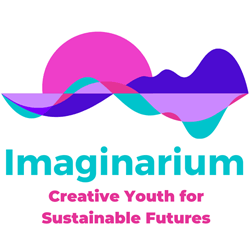One of the intentions of the creativity toolbox is to encourage youth workers to engage young people in the discussion about conscious future planning. In these meetings a youth worker acts more like a facilitator than a teacher or trainer. Facilitating is about supporting the group in discussion, reaching common conclusions and effective cooperation.
One of the intentions of the creativity toolbox is to encourage youth workers to engage young people in the discussion about conscious future planning. You can find some related workshop scenarios here: Design the futures. In these meetings a youth worker acts more like a facilitator than a teacher or trainer. Facilitating is about supporting the group in discussion, reaching common conclusions and effective cooperation. The facilitator’s primarinary role is to help recognize the problem, lead the group to its solution, increase the effectiveness of the team’s work and help them achieve the set goals.
So, what are the most important features of an effective facilitator?
- Create a trustful, free and open space 😊
The facilitator’s task is to support people in accepting and making good use of the information obtained during the meeting. This means that you should be able to create an atmosphere of trust, freedom and openness. The facilitator engages and motivates the group by:
- Taking note of and encouraging the active participation of each member of the group,
- Ensuring that participants understand each other,
- Ensuring that each participant has space to express their ideas, which are considered by the whole group,
- Clearly explain that the participants take joint responsibility for the outcomes of the meeting.
- Listen and ask questions 👂❓
A good facilitator is an active listener, which means constant focus on the group. You should often paraphrase what the participants say, and make frequent recaps in order to liven up the discussion and obtain additional information. A good facilitator must be also able to ask questions that engage the group and motivate discussion. This aspect is a key element. I am even tempted to say that a facilitator who doesn’t ask questions in a meeting isn’t facilitating the session. Thanks to pointed questions, you can put the conversation on the right track, helping the group focus on achieving the goal.
- Be empathetic 💏
Understood as ‘The ability to put yourself in a situation that does not directly concern you.’ or to ‘Walk in someone else’s shoes’. Empathizing means to understand other people’s feelings and expectations, sometimes even to set aside your individual beliefs and biases.
- Be neutral 💫🍀
This is one of the most important skills a good facilitator has. Regardless of whether you agree with a group or you are utterly contrary to its views, you should remain completely neutral. The point is not that you, as the facilitator, have to agree to everything but that you are able to properly validate the situation and accept the solutions that best suit the group and the workshop goals.
- Notice and appreciate even small group successes 🎉🏆
To be appreciative, you have to be mindful of both small and big group achievements, changes, behaviors and what participants say. Facilitation work gives many ways and opportunities to appreciate these things, probably many more than situations for confrontation and constructive criticism. Which “eye” you look at the group with – critical or appreciative – depends largely on you. When you think about being appreciative, your best bet is to start with yourself: Can I appreciate myself or am I only guided by my inner critic?
- Accept the silence 😶🔕
It is in silence where people can connect with their feelings more deeply, clarify their thoughts, and formulate an appropriate question. Very often we are afraid of this space… find it uncomfortable. How often do you try to fill silence with jokes, piling up over-intellectualised questions, calling a break? Get used to the silence – first in yourself, then in the group you accompany. Being in silence is an essential tool in the facilitator’s work.
- Be flexible
The facilitator should be able to adapt plans and assumptions to unexpected situations that may occur during the workshop.
- Play with warm ups 🏃🎠
We warm up not only to connect with each other. We could do a warm up before each part of the work. In the same way an athlete prepares before the main event by stretching their muscles, our warm-ups prepare the mind, emotions and body to work on a given topic, to be open and curious. Remember to choose adequate warm-ups. First, consider what area needs to be the most flexible in the upcoming workshop step: intellect, feelings, body or relationships? Feel free to use the energisers’ ideas from our toolbox: Creative base » Energy
- Rest, when you can 😊💤
Are you surprised by this tip? Facilitation is a very exhausting activity that requires many hours of mindfulness, self-awareness, self-control and instant decision-making. Use breaks for… lying down! Rest the way you like best: Reset your mind, get rid of tension in your body, let your emotions run through you. A tired facilitator is an ineffective one. Facilitator after an effective rest – can do almost anything 💪😉






